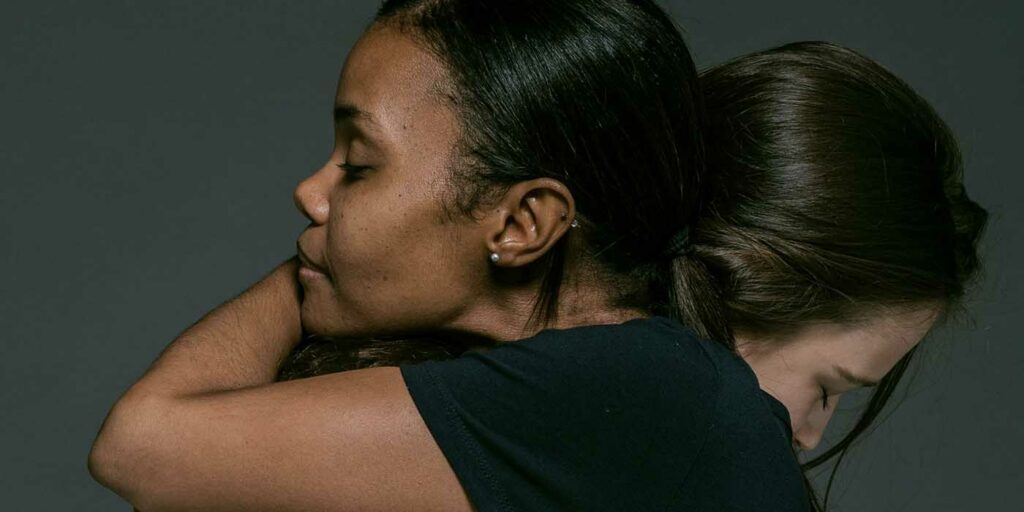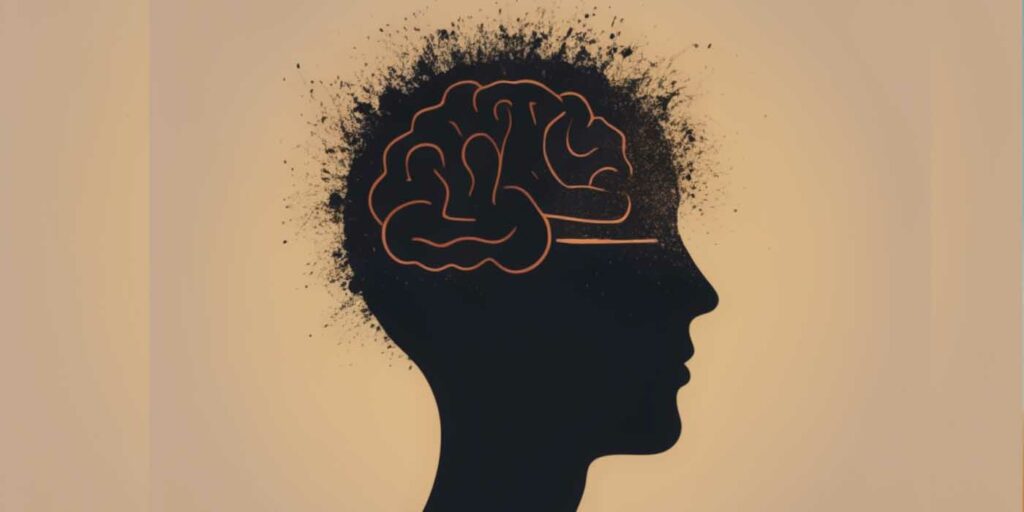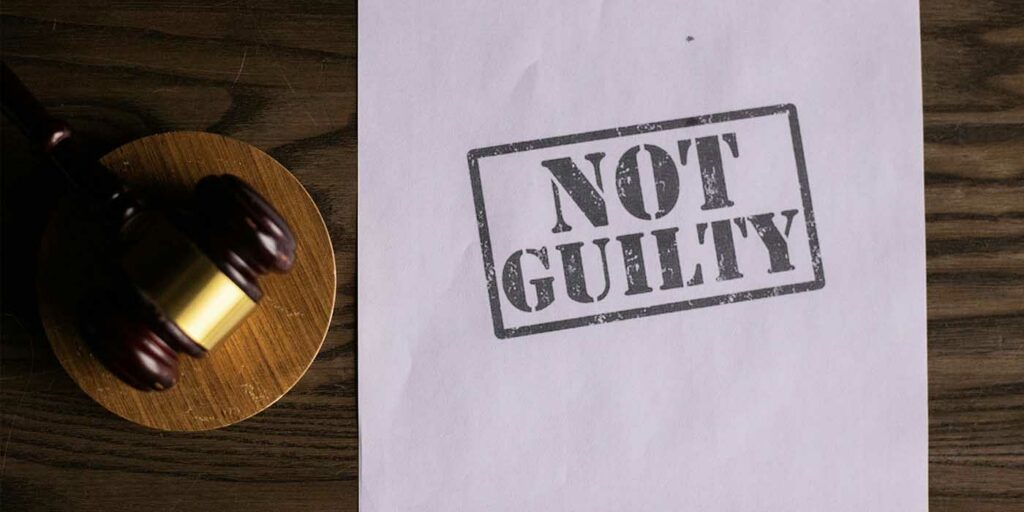Does having empathy for others mean excusing their bad behavior? In this candid piece, I explore the fine balance between empathy and accountability in friendships.
Table of Contents
In a past encounter with a former friend, the delicate balance between empathy and accountability was called into question. Despite her emphasis on radical honesty, my friend Jane* struggled to accept accountability for her actions and used her mental illness as a shield for her both failing to take accountability and lashing out at me. This brought up the topic of when we should hold others accountable for our actions, especially when it comes to mental health.
Although I mangled my attempts to help Jane grow, it was her vindictive backlash to my botched outreach that prompted me to explore the topic of accountability, empathy, and mental health. Jane’s response revealed the dangers of failed outreach. That is why I want to address the intersection of these topics in the hopes of helping other people better navigate conversations with people in their lives who might pose unique challenges. Because at the root of things, conversation is the only way to bring about productive growth, change, and unification.
Accountability 101: Approaching a Difficult Conversation with a Friend

Everything started with a simple question: do I remain a silently supportive friend, or do I call Jane out for her destructive behavior? In short, I noticed that my friend had a repeated pattern of blaming other people for her problems, which held her back from achieving her objectives. Every time something went wrong, Jane had an excuse as to why it was due to someone else. As someone who wanted to see Jane succeed, I felt as though I could not help her grow if I wasn’t honest about the patterns I was witnessing. But when it came to how and if I should be honest, I was conflicted.
My friend had previously disclosed her mental health diagnosis, yet I grappled with whether to approach our interactions through the lens of her condition or the lens of our friendship dynamics. It was a challenging dilemma, as I wanted to honor her steadfast request for honesty while also considering her mental well-being. Ultimately, however, I decided to be honest after I realized how much watching her repeat the same patterns was draining to both herself and the people around her.
Nevertheless, my approach backfired spectacularly, leading to further conflict after I carefully laid out over text how I thought Jane was being self-destructive. Even though I told Jane I believed in her, when I returned from an hour of painting, I discovered dozens of enraged messages, cumulating in suicide threats. When I tried to inquire about Jane’s safety, I discovered she had blocked me on every platform, prompting me to reach out to her mother and husband and wonder how my attempt to help her had gone so dizzyingly wrong.
Empathy: Should We Treat People With Mental Illness Differently?

When it comes to how to communicate, I approached my situation from the perspective of the classic golden rule: treat others how you want to be treated. In retrospect, this failed to take into account how Jane might have wanted to be approached. Though she had repeatedly emphasized the importance of honesty in friendship, I didn’t consider the conversation with the delicacies someone with her condition might require given her personal needs.
At the same time, I don’t believe in viewing people with a mental illness as different from the population of people who don’t have one. The World Health Organization estimated that in 2019, almost a billion people were living with mental health issues. Chances are we all know and love many people who have a mental health condition, and they should not be approached differently from the other people in our lives. In fact, I consider this discriminatory treatment. Essentially, everyone deserves a fair mix of honesty and empathy.
At the same time, as the situation showed me, a one-size-fits-all approach doesn’t account for the more vulnerable portion of the population. While it seems exhausting to change our method of communication based on the needs of others, friends are people we choose to have in our lives. Therefore, building a communication method that is best attuned to meet each other’s unique requirements will likely lead to relationships where both parties feel heard. This is the only way that real change and growth can be brought about, rather than one party feeling unheard or called out.
Does Empathy Negate Accountability?

Here is where things get tricky for some. Jane’s mother told me to excuse her behavior due to her diagnosis. She told me to accept Jane lashing out at me and threatening suicide essentially to punish me because she was not well. But this is where my opinion on the situation varies dramatically.
While having empathy is always an excellent approach to any situation, it should never negate accountability. I communicated the wrong way and offered advice that turned out to be sorely unwanted. But I was not responsible for the emotional well-being of Jane, nor was I deserving of her emotional manipulation. Jane made me believe she had taken her own life as punishment for me calling out her behavior, which is a grossly inappropriate and emotionally manipulative response that perhaps underscores her need to be helped (in a way I cannot offer.)
While empathy is crucial, it cannot be used as a shield to avoid accountability. I even considered if it was perhaps not my place to tell my friend she was making self-destructive patterns because perhaps friends are the people who are supposed to offer unwavering compassion and support. At the same time, I consider friends the people who make you better and challenge your beliefs in the world. Therefore, friendship should be all about holding people responsible for their actions and helping them to grow when necessary.
Furthermore, it is damaging to people with mental illnesses when people use their diagnoses as an excuse for mistreating others. This behavior completely negates autonomy and throws accountability out the door. It also perpetuates false, negative, and harmful stigmas that people with mental health disorders are dangerous and harmful to others. While mental struggles can be used as explanations for bad behavior, they should never be given as justification. And people should never be manipulated into feeling accountable for someone’s actions.
Mental Illness Does Not Equate Harming Others
Many people who cannot take accountability for their lives will try to pin their bad actions on someone or something else. Unfortunately, mental illness is a common scapegoat for bad behavior. But did you know that many stigmas involving mental illness are unearned?
The American Psychological Association cites specific symptoms of serious mental illness that can be associated with violent behavior, though the vast majority of people who have a mental illness are not a harm to other people. Symptoms that can contribute to violent behavior include delusions and hallucinations, mania, grandiosity, grandiose delusions, and antisocial personality traits. However, stigma should not sway judgement.
Accountability: Mental Illness Is Not An Excuse For Mistreatment
While I was relieved when I reached hold of people in Jane’s life and discovered she had not attempted to take her own life, I was faced with a grim reminder of the lengths people will go to manipulate others when I discovered that the situation was a farce to her and she was happily enjoying her digital existence as though she hadn’t played such a deranged hoax.
While Jane’s behavior shocked me, it also reminded me of the importance of cementing this truth: People who try to place others accountable for their lives, such as by claiming suicide during an argument or saying they will end their lives if the other person leaves them, are engaging in emotional manipulation. This is behavior that should be responded to by ordering an ambulance for someone if you cannot reach their family and then promptly removing them from your life.
(Disclaimer: Unless a person is genuinely seeking help, though that will not result in a block if you don’t respond quickly enough. People who genuinely need help should reach out to those around them, which makes it even more grim when someone makes a farce out of this concept.)
People simply cannot allow others to mentally, emotionally, or physically mistreat them if the other person claims it is their mental illness responsible and not themselves. Unfortunately, this is a common manipulation tactic seen in abusive relationships and one that keeps actual victims (those who are being abused) trapped in the grips of this cycle. Abusers will consistently and adamantly divert taking responsibility for their behavior. They will resort to all kinds of blame from pinning their abuse on mental health or drugs to blaming the other person for triggering them into lashing out.
To avoid being overpowered emotionally or physically by people with these domineering and destructive personality types, it’s necessary to hold people accountable for their behavior and view how they respond to criticism. People who lash out and resort to verbal, emotional, or physical attacks rather than admit to their own responsibilities are those who should be avoided because they could become dangerous. People are likely to twist situations to only suit their needs and can villainize others when they feel they are not in control. While people can change, it’s not possible to change if the behavior cannot be recognized in the first place.
Closing Thoughts on Empathy & Accountability

Moving forward, I will always advocate for open communication and mutual respect in friendships. Empathy and accountability can absolutely coexist, but only when both parties are committed to understanding and self-improvement. Friendships are ultimately about finding a balance between supporting each other’s mental health needs and holding each other accountable for actions in order to foster the best in each other.
Ultimately, this jarring experience taught me the importance of adapting communication styles while never compromising personal well-being. Relationships are a continuous process of learning and growth, where empathy and accountability are the guiding principles of healthy dynamics. To achieve this, it’s paramount to always establish and stick by one’s boundaries, because we should not have to fear what happens to our friends if we are busy and cannot answer the phone.
Reflecting on the situation, I realized the importance of offering support while also challenging each other to grow is paramount to friendships. We can help each other grow only when both sides are willing to view themselves as autonomous and responsible for their own actions. Luckily, I am surrounded by many people who respect my needs, though it can be all too easy to fall into a false sense of security with someone who turns out to be a master manipulator.
*The name in this post has been changed for privacy reasons.
The driving force behind me writing this article was to help people avoid being manipulated by destructive personalities, which is a continual goal of mine. If you recognize that you behave like a Jane and want to get better, pease remember, that you are only responsible for yourself and your actions. Taking accountability for your behavior is the first step in changing.
Continued Reading: Exploring Mental Health Stigmas
Resource: Abuse Cannot Be Blamed on Alcoholism or Mental Illness
